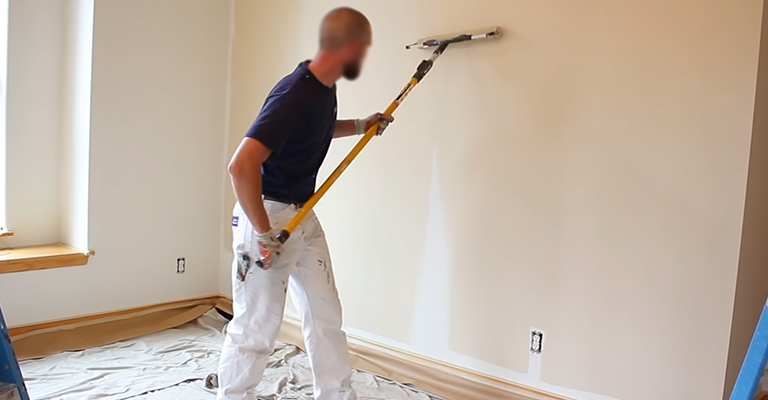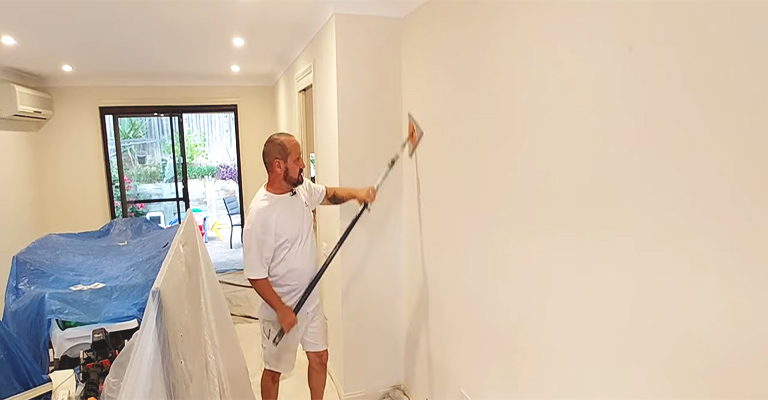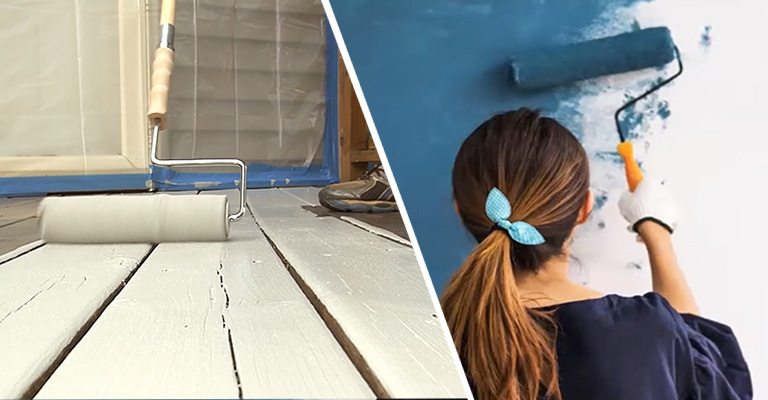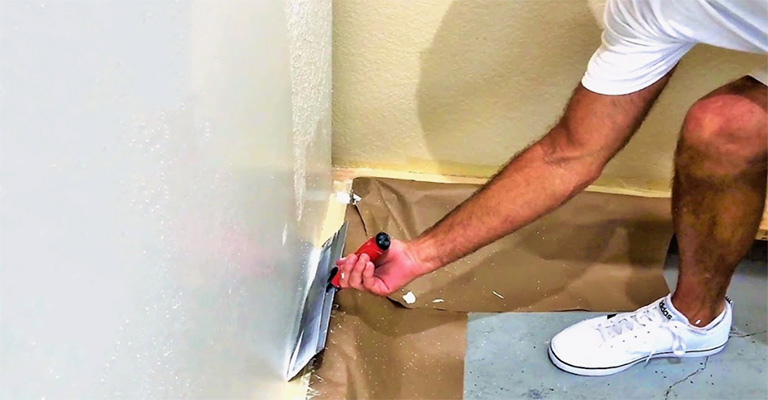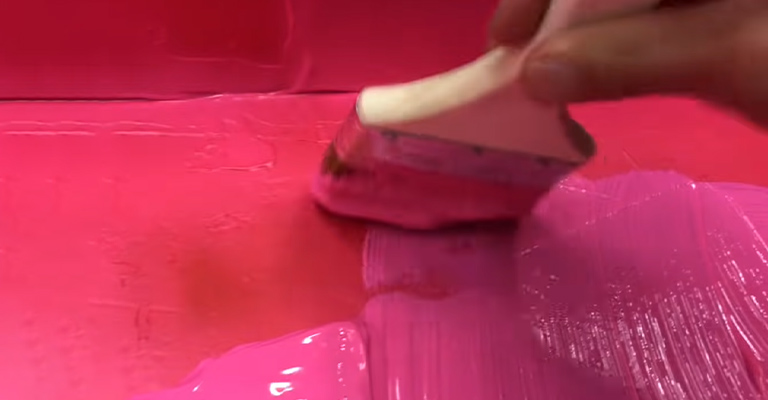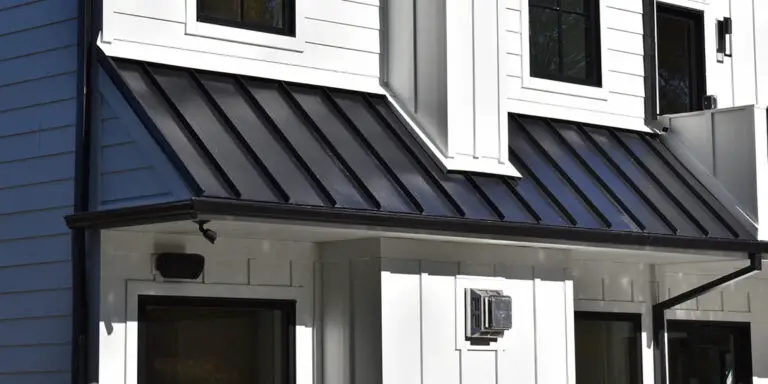Can You Use Flex Seal On Roofs?
If you have a leaky roof, you might be wondering if you can use Flex Seal to fix it. Flex Seal is a liquid rubber product that claims to seal any cracks, holes, or gaps in various surfaces. It comes in different forms, such as spray cans, paint cans, caulk tubes, and tape. But is it a good option for roof repairs?
While this product does not require any special skills to use, there are some concerns about how safe it is for use in an indoor venue like a home or garage.
The only downside with this product is that it does not work as quickly as other products on the market such as tar or rubber membranes.
In most cases, homeowners use Flex Seal on their residential roofs. However, it is also used for commercial purposes. Business owners can use this material to prevent leaks in a variety of structures such as warehouses, machine shops, garages, and carport roofs.
What Is Flex Seal?
Flex Seal is a flexible rubber coating that could be integrated with a wide range of different materials. It provides a seal to make the materials waterproof and can be used on any surface.
It is a pressure-sensitive adhesive designed to seal seams, cracks, and crevices in drywall, concrete, stucco, wood, and ceramic tile. Flex Seal is a flexible rubber coating that could be integrated with a wide range of different materials.
It provides a seal to make the materials waterproof and can be used on any surface. To provide the best protection against moisture, it has been made from silicone-based material.
It is currently in use in many industries and there are plenty of use cases for it in homes too, especially when you want to keep your electronics safe and dry during this winter season.
What Is Flex Seal Used For?
Flex Seal is a brand of adhesive bonding products that claim to coat, seal and protect various surfaces with durable, rubberized coatings.
Flex Seal products are made by Swift Response, a family-owned company based in Florida, and are endorsed by its CEO and pitchman Phil Swift.
Flex Seal products come in different forms and applications, such as sprays, liquids, tapes, glues, pastes and minis.
Each product has its own features and benefits, but they all share some common characteristics:
- they are easy to apply
- they can be used on wet or dry surfaces
- and they form a watertight, flexible barrier that seals out air, water and moisture.
Flex Seal products can be used for a variety of purposes and projects, both indoors and outdoors.
Some of the common uses of Flex Seal products are:
- Repairing leaks in roofs, gutters, pipes, basements and foundations
- Caulking gaps and cracks in showers, bathtubs, windows and doors
- Filling large holes and dents in walls, floors and ceilings
- Bonding tiles, bricks, stones, wood and metal
- Protecting outdoor items from rust and corrosion
- Fixing damaged boats, kayaks, pools and spas
- Creating crafts, hobbies and decorations
If you are looking for a versatile and reliable product that can help you with your home improvement or DIY projects, you might want to give Flex Seal a try. You can find Flex Seal products at various retailers or order them online from their official website. As Phil Swift would say: “Flex on!”
Can You Use Flex Seal On Roofs?
The answer is: it depends.
Flex Seal can be a quick and easy solution for minor leaks or temporary fixes, but it is not a permanent or reliable way to repair your roof.
Here are some reasons why:
- Flex Seal is not designed for roofing materials. It may not adhere well to some types of shingles, tiles, metal, or wood. It may also crack or peel off over time due to weathering or UV exposure.
- Flex Seal is not waterproof. It may stop the water from dripping through the roof, but it does not prevent moisture from seeping into the underlying layers of the roof. This can cause mold, rot, or structural damage over time.
- Flex Seal is not durable. It may work well for small cracks or holes, but it cannot handle larger or deeper damages. It may also wear off or lose its effectiveness over time, requiring frequent reapplication.
- Flex Seal is not professional. It may look messy or unsightly on your roof, especially if you use different colors or forms of the product. It may also lower the value of your home or violate your warranty or insurance policy.
So what should you do instead of using Flex Seal on your roof?
The best option is to hire a professional roofer to inspect and repair your roof properly.
A roofer can identify the source and extent of the leak, replace any damaged or missing shingles, apply the appropriate sealant or coating, and ensure that your roof is safe and secure.
However, if you need a temporary fix until you can get a roofer.
you can try some alternatives to Flex Seal that are more suitable for roofing applications.
Some examples are:
- Liquid Rubber Waterproof Sealant: This is a water-based product that can be applied with a brush, roller, or sprayer. It forms a flexible and seamless membrane that protects your roof from water and UV rays. It can be used on various roofing materials, such as EPDM rubber, metal, concrete, wood, and more.
- Gorilla Waterproof Patch & Seal Tape: This is a heavy-duty tape that can stick to wet surfaces and create a tight seal. It can be used to patch holes, cracks, gaps, or seams on your roof. It has a thick adhesive layer that conforms to uneven shapes and withstands harsh weather conditions.
- Dicor Self-Leveling Lap Sealant: This is a caulking product that can be used to seal around vents, pipes, skylights, or other protrusions on your roof. It has a self-leveling formula that fills any gaps and creates a smooth surface. It can be used on EPDM rubber roofs and other materials.
These products are not meant to replace professional roof repairs either, but they can provide better results than Flex Seal for minor or temporary fixes.
They are also more affordable and widely available than Flex Seal.
In conclusion, Flex Seal is not a good option for fixing roof leaks. It may work for some small or temporary repairs, but it is not reliable or long-lasting. It may also cause more problems than it solves in the long run. If you want to fix your roof properly and permanently, you should contact a professional roofer instead.
Is Flex Seal Permanent?
Is Flex Seal permanent? The short answer is no, it’s not. However, it does last for a while and can be useful in certain situations. It will wear out over time and will need replacement sooner or later.
The long answer: Flex Seal is semi-permanent, meaning that it can last for quite some time before needing replacement. As long as the sealant remains intact on the roof, it will do its job well and prevent leaks from happening again in the future.
It can be used on most types of roofs, but it is most commonly used on asphalt shingle roofs. Some homeowners use Flex Seal to create a barrier against water, ice, and snow.
Permanence is the primary factor in most applications of this product. The longevity of Flex Seal depends on the type of roof you are using it on and how well you use it.
Will Flex Seal Stop Water Leaks?
Flex Seal is a water-based sealant that has been in the market for years and protects against leaks. It has proven to be highly effective in stopping water infiltration.
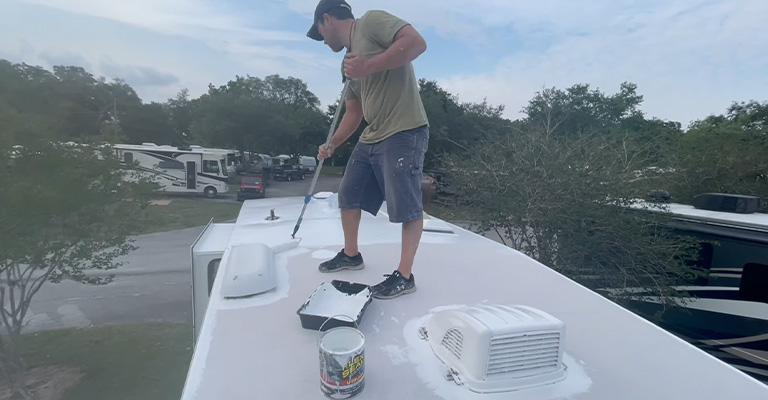
It’s no secret that roofs are one of the most important parts of a house. They protect you, your family, and your possessions from the weather, pests, and other threats.
This is why you must invest in a waterproofing system like Flex Seal to protect your roof from leaks and protect your home from expensive damages.
Will Flex Seal stop the leaks? The product claims to protect against leaks for up to 5 years after application, but we will have to wait until we see how long the product lasts on the roof before we can know for sure if it works or not.
Also read – How To Insulate A Roof Without Attic?
Final Words
Dealing with a roof leak can be challenging, but products like the flex seal liquid and original flex seal spray offer promising solutions to address minor roofing repairs. The flex seal spray is especially versatile and can be applied easily to target specific areas where there might be a leak underneath. Whether you’re trying to seal roof leaks around exhaust pipes or simply aiming to reduce overall roof leakage, the flex seal family of products provides a range of options. However, always remember to evaluate the extent of the damage; while spray flex seal can handle minor issues, more severe problems might require professional intervention.
Flex Seal is a sealant that can be used for a variety of uses. It will provide a breathable, flexible, and durable barrier to protect against air, moisture, and water. The easy-to-use spray can is so simple anyone can use it. Many people have been able to use Flex Seal effectively for a variety of reasons. It is a type of sealant that can be applied in many different ways. It has been used to maintain the integrity of floors, walls, roofs, pipes, and many other surfaces. Flex Seal also helps in the prevention of mold and mildew growth.
Flex Seal is a versatile, multi-purpose solution that is great for sealing cracks and other small openings. It works by expanding to fill the area, creating a flexible barrier between your home or business and the outside elements. It’s easy to use, safe on most surfaces, and can be used for indoor or outdoor applications.

